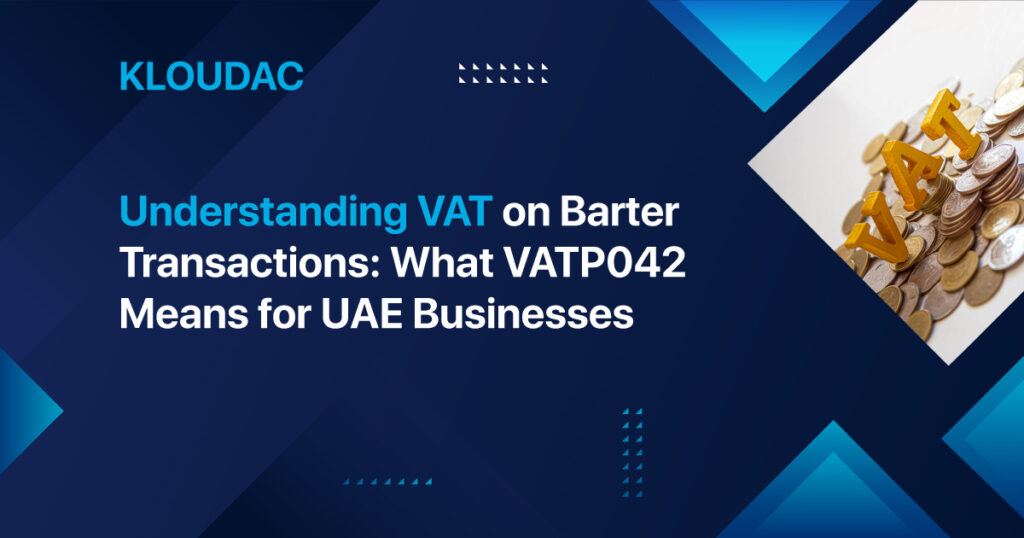In May 2025, the UAE Federal Tax Authority (FTA) released Public Clarification VATP042, offering clear guidance on how to handle barter transactions for VAT purposes. These updates directly affect businesses that trade goods or services without monetary payments, such as swaps, trade-ins, or non-cash compensations.
What is a Barter Transaction?
Under VATP042, the FTA defines a barter transaction as:
“A supply of goods or services where payment is made in the form of other goods or services, with or without a partial monetary payment.”
In simple terms, if you provide a service or product and receive another in return (instead of cash), you’ve entered into a barter transaction.
How Is VAT Calculated in Barter Deals?
The FTA makes it clear: barter deals are taxable supplies, and the same VAT rules apply as with regular transactions.
Here’s how businesses must treat them:
- Both parties are suppliers and must issue valid tax invoices.
- The value of the supply is based on the fair market value of what you receive, not what you give.
- If the exchange involves both goods/services and money, the total taxable value includes both.
- You must state all values exclusive of VAT on the tax invoice.
Example Scenario
Let’s say:
- Company A provides IT support worth AED 10,000 to Company B.
- In return, Company B delivers marketing services of equal value.
Both companies must:
- Issue tax invoices stating AED 10,000 as the value of their supply.
- Charge 5% VAT (AED 500) on that amount.
- Report the transaction in their VAT returns, just like a standard sale.
Why This Update Matters
Many businesses assume incorrectly that non-cash exchanges aren’t taxable. However, VATP042 clarifies that even without cash, VAT still applies. The FTA requires businesses to issue invoices and report all barter transactions properly.
KLOUDAC Can Help
Our VAT compliance experts help businesses review past barter transactions for potential reporting gaps, ensure proper issuance of VAT invoices, value non-cash supplies according to market standards, and train internal teams to accurately identify and handle barter scenarios within their operations.
